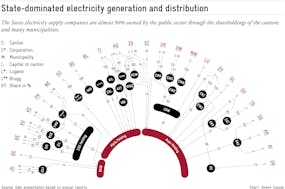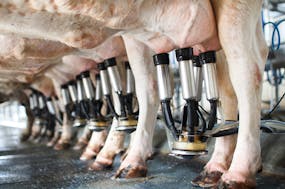The US is Switzerland’s biggest trading partner after the European Union. More than 12 per cent of Swiss exports go to the United States, while around CHF 21 billion of goods travel in the opposite direction, representing 8.0 per cent of total Swiss imports.
Mutual economic interdependence is also reflected in foreign direct investment. Between 2006 and 2016, Swiss companies’ spending in the USA grew by 45 per cent to CHF 234 billion. Meanwhile, US investment in Switzerland rose by 48% to CHF 124 billion. In terms of capital stock, Switzerland has become the sixth largest investor in the US, while the latter ranks third in Switzerland.
Reducing or entirely eliminating all remaining tariff and non-tariff barriers could be highly beneficial for Switzerland. A first chance to conclude a free trade agreement (FTA) with the US has already been missed. In 2006, domestic political pressure, particularly from Swiss farmers, sank a deal before talks even progressed beyond the exploratory stage. Now, 12 years later, our country should not reject another historic opportunity.

The time has come to remove obstacles to a free trade agreement with the US. Picture: Jeep in the Nevada desert. (Wikimedia Commons)
A FTA would shield Switzerland from protectionist “America first” tendencies. But to reach such an agreement, Switzerland powerful farm lobby will have to come round. Do farmers still wield enough power to block the interests of Switzerland’s heavily export orientated economy again? The agricultural lobby is already erecting obstacles to a FTA with Latin America’s Mercosur bloc. Separate talks with Indonesia and Malaysia are stalled because of Swiss farmers’ fears about the impact on domestic rapeseed oil production (which represents precisely 0.2 per mille (!) of Swiss GDP).
Swiss agriculture generates just 0.7 per cent of total economic value added. The farm lobby’s traditional strategy of portraying agriculture as essential to “national security” – thereby excluding it from FTAs – no longer cuts much ice.
This article was published in the “Handelszeitung” on 6 September 2018.





